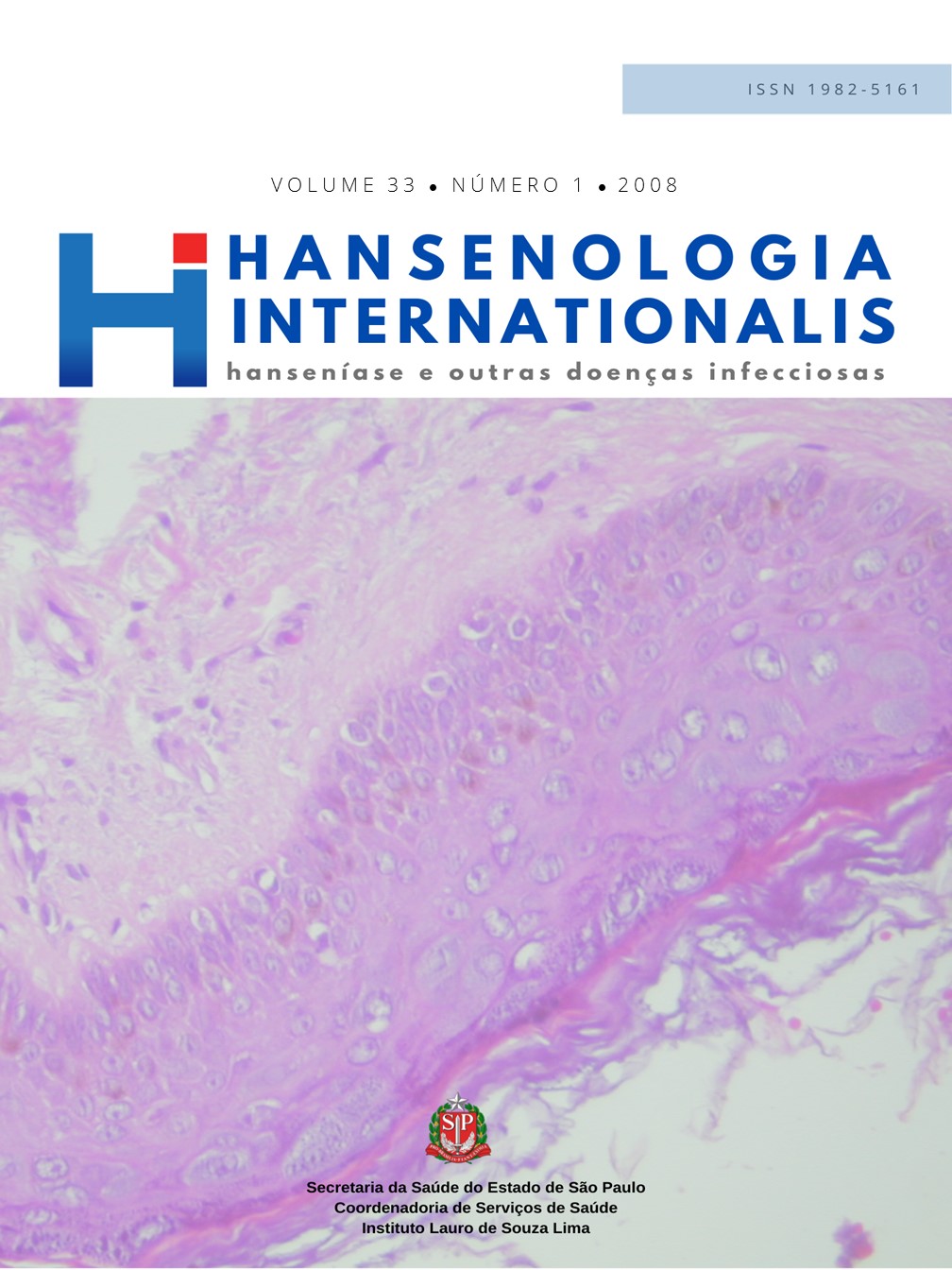Abstract
This work began with a pilot project for professional empowerment or semi-professionalizing courses developed between 2001 and 2002, with eleven users of the health services of the State of São Paulo. These users were people with leprosy and his contacts. After the subject’s selection, a qualitative research was performed during which the researchers tried to rescue the life history and the working status of those users, seeking to establish the changes occurred after the leprosy diagnosis, specially at work. The used tools were a form and the topic life history. The data analysis showed following categories: life quality; perceptions and representations about the disease; social condition changes due to the diagnosis; leprosy and working relations; and leprosy and the health system. Among other aspects, it was noted that: the users think that lying or omitting the disease is necessary in order to get or to keep a job, since prejudice, discrimination and isolation resulting from
the stigma still exist; also noted was the great benefit the subjects had when they enhanced their self-esteem thanks to the provided empowerment course. On the other side, the reports showed that most professionals of the health area are still unprepared to identify and diagnose leprosy patients. The suggested proposals are: to intensify the clarification campaigns for the population; to make a research in order to understand the user’s route to the health unit and the leprosy diagnosis; the continued education of the health system’s professionals; to intensify the training during the regular courses and post-doctoral courses of the future health professionals about how to suspect, diagnose and treat leprosy; and to outreach the empowerment courses to other units in the State of São Paulo.
References
2 Martinelli ML. Seminário sobre metodologias qualitativas de pesquisa. In: Martinelli ML, organizadora. Pesquisa qualitativa: um instigante desafio. São Paulo: Veras; 1999. p. 24-9.
3 Cruz Neto O. O trabalho de campo como descoberta e criação. In: Minayo MCS, organizadora. Pesquisa social: teoria, método e criatividade. Petrópolis, RJ: Vozes; 1994.
4 Silva Mad. Qualidade de vida: o que mais além da dieta, do exercício e da prevenção de doenças. Insight 1998; 8 (85): 24-7.
5 Rocha Cs, Fritsch R. Qualidade de vida no trabalho e ergonomia: conceitos e práticas complementares. Serviço social e Sociedade 2002; 23 (69): 53-72.
6 Claro Lbl. Hanseníase: representações sobre a doença. Rio de Janeiro: FIOCRUZ; 1995.
7 Branden N. Auto-estima: como a aprender a gostar de si mesmo. 4ed. São Paulo: Saraiva 1992; p. 9-10.
8 Mioto RCT. Família e Serviço Social: contribuições para o debate. Serviço Social e Sociedade 1997; 18 (55): 114-30.
9 Rotberg A. Lepra: o estigma agrava a doença. Radis, Tema 5, Escola Nacional de Saúde Pública 1983; (1): 2-5.
10 Monteiro YN. Origens e histórico da marginalização dos portadores de hanseníase; [199-]. Mimeografado.
11 Freire P. Educação como prática da liberdade. 3ed. Rio de Janeiro: Paz e Terra; 1971.
12 Pochmann M. O desemprego no capitalismo. Serviço Social e Sociedade 1996; 17 (52): 165-7.
13 Silveira MLS. De pobre a trabalhador: uma reflexão sobre o sujeito no Serviço Social. Rio de Janeiro: Produtor Editorial
Independente; 2000.

This work is licensed under a Creative Commons Attribution 4.0 International License.
